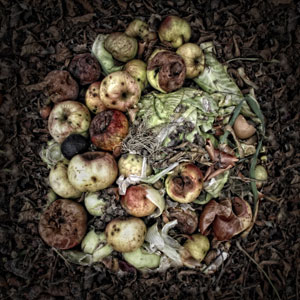| Sep 21, 2013 |
Organic waste transformed into industrial prime material
|
|
(Nanowerk News) Researchers at the Iberoamerican University (IBERO) in Mexico City, look to consolidate a pilot biorefinery that will use the waste of various fruits, vegetables, flowers and plants produced in urban and rural areas, to transform them into fuels and high value products. In that sense, various industries have managed to obtain products and industrial raw materials, paints, fuels, explosives and bases for human and animal food from bioethanol.
|
 |
| The biorefinery will use organic waste of various fruits, vegetables, flowers and plants.
|
|
Lorena Pedraza Segura, researcher at the Department of Engineering and Chemical Sciences, explained that the proposed biorefinery has its origins in two previous investigations, one oriented towards the production of bioethanol from trunk shelled corn (cob). And the second one, based on various studies that allowed researchers at Ibero to obtain this fuel from the organic waste generated at Central de Abasto (biggest Latin-American supply center for vegetable and animal products) in Mexico City.
|
|
Subsequently, Pedraza Segura shifted the focus of the research to raise the construction of a biorefinery. This could be installed in the areas surrounding the Central de Abasto or near disposal centers in Jalisco or Sinaloa, major corn production areas in Mexico.
|
|
The Ibero specialist said there are great expectations regarding the manufacture of high value products from Central de Abasto’s organic waste and cob, due to several aspects. “Waste” not apt for human consumption would be used for this purpose, this residue are composed by lignocellulosic material, ie having a composition of three polymeric layers: cellulose, hemicelluloses and lignin.
|
|
"Particularly the cob is one of the most effective waste material used to produce ethanol due to the amount of sugar it contains and because it is easier to treat, since it is very consistent," said the researcher. He added that in the case of waste from the Central de Abasto, the raw material for bioethanol is changing due to seasonality of each product.
|
|
Pedraza Segura concluded that the pilot biorefinery would be equipped to a semi-industrial level. This would allow to perform diverse experiments with more trustworthy results than those observed at laboratories; besides, it would permit the generation of human resources specialized in the manufacturing of products derived from lignocellulosic material.
|


